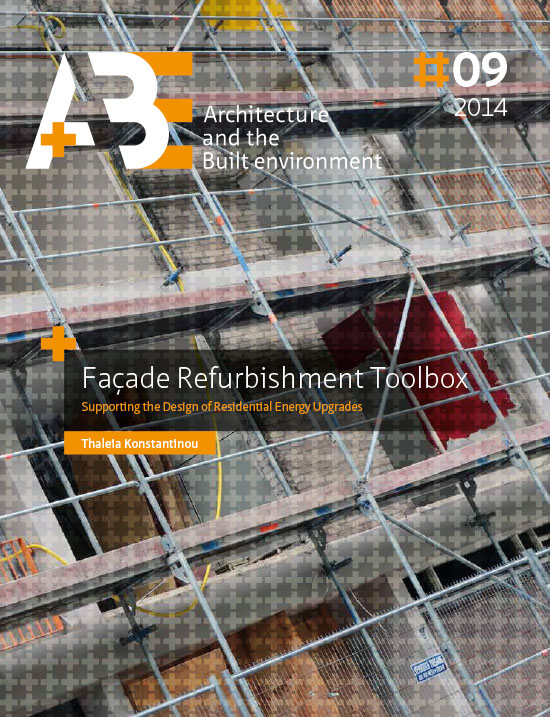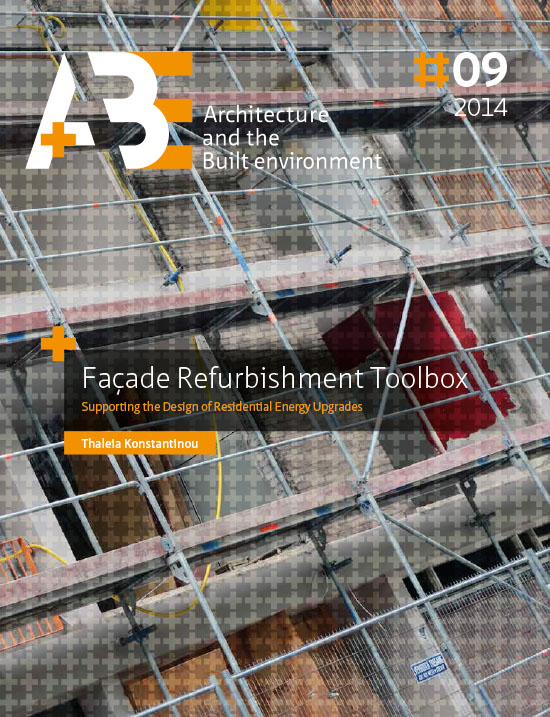- Engels
- Study
- nature & science
- FACADE REFURBISHMENT TOOLBOX
KONSTANTINOU, THALEIA
FACADE REFURBISHMENT TOOLBOX
39,95incl BTW
Vertrouwd sinds 1927
Persoonlijke aandacht en advies
Vanaf 17,50 gratis verzenden NL & BE
Meer dan 150.000 artikelen online
Omschrijving FACADE REFURBISHMENT TOOLBOX
The starting point of the research is the need to refurbish existing residential building stock, in order to reduce its energy demand, which accounts for over one fourth of the energy consumption in the European Union. Refurbishment is a necessary st
ep to reach the ambitious energy and decarbonisation targets for 2020 and 2050 that require an eventual reduction up to 90% in CO2 emissions. In this context, the rate and depth of refurbishment need to grow. The number of building to be renovated ev
ery year should increase, while the energy savings in renovated buildings should be over 60% reduction to current energy demand. To achieve that, not only is it necessary to find politics and incentives, but also to enable the building industry to de
sign and construct effective refurbishment strategies. This research focuses on refurbishment of the building envelope, as it is very influential with regard to energy reduction.
The early design phases are particularly important, as decisio
ns taken during this stage can determine the success or failure of the design. Even though the design decisions made earlier can have bigger impact with lower cost and effort, most existing tools focus on post-design evaluation. The integration of al
l aspects during the early design phases is complex, particularly as far as energy efficient design is concerned. At this stage, architects are in search for a design direction to make an informed decision. If the designer is provided with an indicat
ion of how efficient refurbishment options are, it is possible to apply them as part of an integrated strategy rather than trying to add measures at later stages, after the strategy has been developed.
Therefore, taking into account the need
to refurbish residential buildings and the importance of integrated design of facade refurbishment strategies, the thesis aims at answering the following question.
How can the energy upgrade potential of residential facade refurbishment str
ategies be integrated in the early design phase, in order to support decision-making?
ep to reach the ambitious energy and decarbonisation targets for 2020 and 2050 that require an eventual reduction up to 90% in CO2 emissions. In this context, the rate and depth of refurbishment need to grow. The number of building to be renovated ev
ery year should increase, while the energy savings in renovated buildings should be over 60% reduction to current energy demand. To achieve that, not only is it necessary to find politics and incentives, but also to enable the building industry to de
sign and construct effective refurbishment strategies. This research focuses on refurbishment of the building envelope, as it is very influential with regard to energy reduction.
The early design phases are particularly important, as decisio
ns taken during this stage can determine the success or failure of the design. Even though the design decisions made earlier can have bigger impact with lower cost and effort, most existing tools focus on post-design evaluation. The integration of al
l aspects during the early design phases is complex, particularly as far as energy efficient design is concerned. At this stage, architects are in search for a design direction to make an informed decision. If the designer is provided with an indicat
ion of how efficient refurbishment options are, it is possible to apply them as part of an integrated strategy rather than trying to add measures at later stages, after the strategy has been developed.
Therefore, taking into account the need
to refurbish residential buildings and the importance of integrated design of facade refurbishment strategies, the thesis aims at answering the following question.
How can the energy upgrade potential of residential facade refurbishment str
ategies be integrated in the early design phase, in order to support decision-making?
Specificaties
- MerkBK Books
- GroepEXACTE WETENSCHAP (910)
- Barcode9789461863379
- LeverstatusActief
Reviews
0.0/5.0
Gemiddelde uit 0 reviews
Meest behulpzame reviews
Nog geen reviews geschreven


